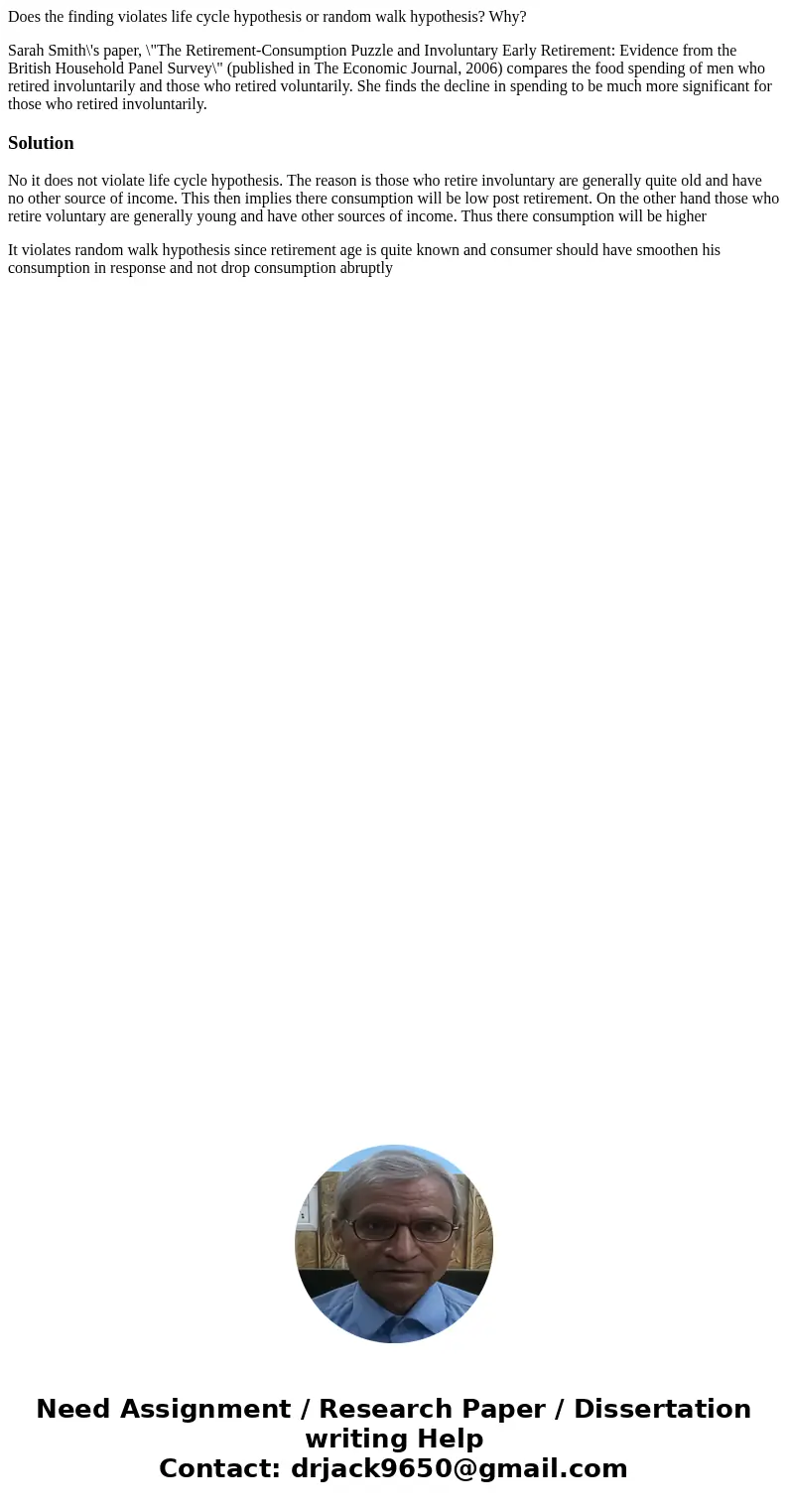Does the finding violates life cycle hypothesis or random wa
Does the finding violates life cycle hypothesis or random walk hypothesis? Why?
Sarah Smith\'s paper, \"The Retirement-Consumption Puzzle and Involuntary Early Retirement: Evidence from the British Household Panel Survey\" (published in The Economic Journal, 2006) compares the food spending of men who retired involuntarily and those who retired voluntarily. She finds the decline in spending to be much more significant for those who retired involuntarily.Solution
No it does not violate life cycle hypothesis. The reason is those who retire involuntary are generally quite old and have no other source of income. This then implies there consumption will be low post retirement. On the other hand those who retire voluntary are generally young and have other sources of income. Thus there consumption will be higher
It violates random walk hypothesis since retirement age is quite known and consumer should have smoothen his consumption in response and not drop consumption abruptly

 Homework Sourse
Homework Sourse